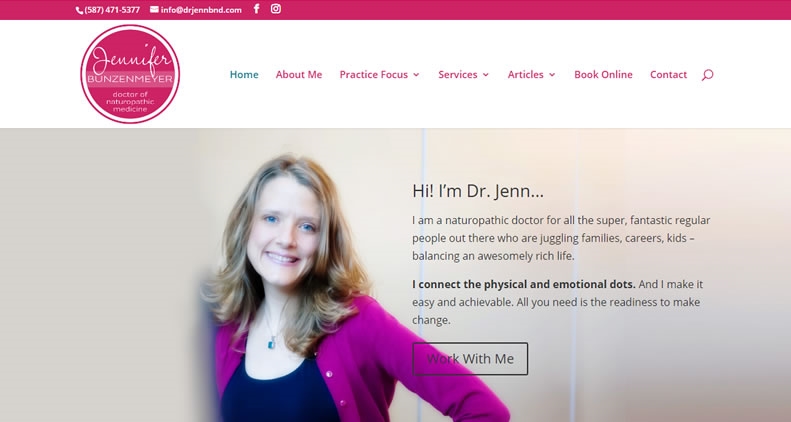Follow These EAT Guidelines to Improve Your Website SEO
You know what they say – you are what you eat.
Of course, when people say this, they’re usually discussing your diet, and how your food choices impact your health.
But what about the health of your website?
Turns out what your website ‘eats’ plays a big role, too!
I’m talking, of course, about EAT, part of Google’s new search guidelines. If you want to create content that Google likes, then you MUST follow EAT!
EAT stand for three important criteria that Google uses when evaluating your site:
- Expertise
- Authority
- Trustworthiness
Going forward, businesses looking to attract more web traffic will have to consider Google’s EAT guidelines.
Not sure how to do that? Don’t worry. Like with all things about search engine optimization (SEO), we’ve got your back.
Keep reading to understand these guidelines, plus how to use EAT to make your website a whole lot better.
Understanding Google EAT
EAT is one of the metrics that Google can use to assess the quality of a site. Let’s break down what they’re looking for explicitly in each category.
1. Expertise
You wouldn’t ask your dentist to change your oil. We all know that expertise matters, and that includes on the internet.
So Google also likes to determine the expertise of the creator of a website, to see if they’re a right fit for the types of questions being searched.
That means Google likes to see proof that you are indeed an expert in your field (and don’t worry – we’ll cover ways to do this below).

Use Google’s new search guidelines to position yourself as an expert in your field.
2. Authority
Authority takes expertise a step further.
Imagine you’ve been secretly making cupcakes for 20 years, and you’ve perfected your recipe. You would certainly have some expertise in cupcake making (lucky you!).
But if no one’s ever tasted your cupcakes, then you wouldn’t be an authority in the cupcake world. No one would be looking to you for your advice or recipes.
The same goes for websites. It’s great to have a lot of high-quality content on your website. But Google is looking for ways to determine if other people actually value that content.
Ultimately, Google wants to showcase websites with recognized authority in their field.
3. Trustworthiness
And like you’ve probably already guessed, it’s important Google sees you and your website as trustworthy. That means they will reward content they believe is honest, accurate and true.
Again, we’ll cover how to boost your EAT below.
But first, note that EAT is especially important for websites that deal with issues like your health, your finances and your safety. Nicknamed YMML (‘your money and your life’), these are areas where serving up the right results really matters, with sometimes life-or-death stakes.
So Google is much more critical of YMML sites than of others.
That’s why when we work with clients like Naturopathic Dr. Jennifer Bunzenmeyer, we make sure we follow every best practice to an absolute ‘T.’

By using proper SEO strategies and following EAT principles, eVision Media helped Dr. Jennifer increase her first page ranking from 2 focus keywords to 37 in just two months.
Why Is EAT Important for SEO?
To understand how Google SEO works, you first have to understand Google’s goals.
Remember (and believe it or not), Google has competition. There are other search engines out there.
So Google’s goal is to be the best search engine available so they continue to dominate internet search (they’re currently at 92.18% of all internet searches, so clearly, they’re doing something right!).
In order to reach this goal, Google has to consistently show the best results for whatever keyword someone happens to be searching for. They want to make sure they’re serving up search results that answer their user’s questions with high-quality content.
Because if they stop serving up good results, people will stop using them.
And it’s that ‘high-quality content’ piece where EAT comes in.
Thankfully for business owners, EAT dovetails with what should already be important elements of your brand.
To be successful in any business venture, you need to position yourself as a trustworthy, authoritative expert. So the more you can create great content, that both your audience and Google will love, the better your website will perform.
How To Improve Your Website Credibility and Authority
So how to create content that Google likes? Think about the EAT of your website, and let that inform your content, marketing and branding decisions.

To help improve authoritativeness for our client TruWood, we’ve included lots of testimonials and customer feedback on his website
To improve your EAT rating, consider the following tips:
- Do good keyword research to ensure you’re providing exactly the type of content your audience is searching
- Become a quality author by being active on social media, engaging with other influencers, and writing guest posts on other sites
- Make sure your website includes reviews and testimonials
- Make sure your business information is clear and easy to find and includes your company history, along with team bios and a stellar Contact page
- Include links on your site to other authorities (like we linked to this authority site earlier in this post), and internal links that help Google understand the structure of your site
- Try to make sure there are no grammar, broken links or factual errors on your site.
Ultimately, you want to make it crystal clear who you are and what your company is about – along with why you’re the true excerpt in your field.
And (how many times do we need to say it?), content is still king, and will always be king!
So one of the best ways to ensure you’re following all these steps is to ensure you’re regularly putting out quality content on your blog.
Ultimately, building a good SEO website takes research and work. Staying on top of best practices for Google is a full-time job.
That’s why hiring a specialist will give you the best ROI for this important business investment.
Don’t expect to be an overnight success, but by working with a digital marketing agency like us, you can help ensure you’re consistently putting out content that Google will favor.
Originally published here.
Digital & Social Articles on Business 2 Community
(64)
Report Post









